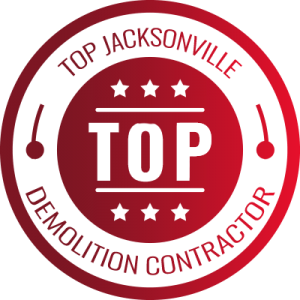



Removing pools from commercial properties isn’t as simple as draining water and bringing in a backhoe. It takes a lot more than that. These projects usually involve much larger structures, reinforced concrete, stricter legal requirements, and site-specific precautions. In places like Jacksonville and the broader Northeast Florida region, commercial pool demolition must align with local guidelines, which often differ from residential jobs.
For businesses, schools, hotels, or community centers removing an old or unused pool, it’s about more than clearing out space. It’s about doing it safely, legally, and with as little disruption as possible to daily operations. Commercial properties have different construction standards, purposes, and operating schedules. That means pool removal takes a more tailored and careful approach.
The Complexities Of Commercial Pool Demolition
Commercial pools are bigger, deeper, and often have more built-in features than residential ones. We’re talking about stronger concrete, heavier rebar, and things like surrounding patios, fences, deck drains, filtration rooms, or attached spas. All these parts have to be accounted for when planning the tear-out.
Beyond the physical differences, commercial pool demolition in Jacksonville comes with more legal requirements. Property owners often need specific permits before they can start work. This includes not just demolition permits, but sometimes environmental clearance or inspections depending on the age of the facility and whether the pool was part of a larger operational setup.
In Jacksonville, FL, city and county requirements may include things like soil testing, erosion control plans, and proof of proper debris disposal. Failing to meet these can cause expensive delays and fines. That’s why having someone familiar with local codes matters. They know when and where to file paperwork, how to document the site before and after removal, and how to work with inspectors if something needs clarification.
Breaking down the key challenges:
– Commercial pools are typically larger with more structural components
– Stronger materials like thick concrete and steel are used, requiring heavier-duty equipment
– Legal and permit requirements are more detailed and time consuming
– Environmental safety rules may apply depending on the facility and its location
– Timelines need to be tight to avoid affecting regular business operations
As an example, consider an older hotel with a pool that’s been leaking underground for years. Removing that pool requires extra care so the work doesn’t damage utility lines or the building’s foundation. It might even involve coordinating with engineers or surveyors. That’s commercial pool removal. It touches every part of the property and often involves much more coordination than many expect.
Preparation And Planning
A good start makes all the difference with commercial pool demolition. That means no guesswork. Everything needs to be mapped out ahead of time. The first step is doing a full inspection of the pool and the surrounding area. This helps uncover any hidden risks like underground plumbing or electrical lines. Surface damage is easy to spot, but what’s under the concrete matters even more.
Each demolition plan should include:
– Site assessment and documentation
– Timeline of when demolition will happen
– List of permits and approvals required by Jacksonville officials
– Safety measures for crew and nearby buildings
– Procedures for debris removal, cleanup, and inspections
Risk assessment matters too. Commercial properties often have other structures or features close to the pool that need protection. This could include retaining walls, landscaping, nearby walkways, or even underground storage tanks. A clear method for protecting and working around those is a must.
Finally, it helps to work with experienced pool demolition companies that understand the type of commercial property involved. A team that’s done removals at gyms or hotels will handle the project differently than one at a public park or school. The more experience they bring, the smoother the planning goes. That makes the job easier on everyone involved.
Techniques And Equipment Used
Commercial pool removal isn’t a one-size-fits-all job. The size and complexity of the pools mean the equipment has to match the demands. In Jacksonville, it’s common for commercial properties like hotels and sports centers to have reinforced concrete pools with large plumbing systems. Removing these requires heavy machinery, like excavators with hydraulic breakers, as well as saws and concrete processors that can cut through thick structural elements without damaging surrounding property.
It’s not just about tearing things down. The work has to be controlled and safe. Crews plan each step to avoid disrupting services or harming nearby foundations. For example, some pools are built close to buildings or public paths. Removing those might call for more careful manual work along the edges or the use of smaller machines with specialized attachments.
Safety also takes the spotlight throughout the process. Commercial properties often have power lines, water mains, or gas lines nearby. Crews follow site-specific safety procedures when working near these, often shutting off utilities or marking hazard zones in advance. There’s also a strategy for managing the debris. That includes deciding what gets hauled out, what can be crushed and reused on-site, and the best path to move materials without blocking business activities.
What separates commercial pool demolition from smaller jobs is how structured it is. Each action follows a timeline, and equipment is chosen based on the pool’s size, construction material, and location. That approach saves time, lowers risk, and helps everyone stay on track.
Environmental Considerations
Even concrete comes with environmental responsibilities. In Jacksonville and the rest of Northeast Florida, removing a commercial pool isn’t just about ripping things out. Local guidelines require workers to think about what happens to all those materials once they leave the site. Concrete, tile, plumbing parts. These can’t end up in unauthorized dump sites. They need to be sorted and sent to proper recycling or disposal facilities.
Then there’s the water. Some pools hold thousands of gallons, and just draining it into the ground or nearby drains isn’t an option. Local codes usually call for proper filtering and discharge into approved systems so harmful chemicals don’t enter the water table or storm systems.
Here’s what a responsible environmental approach might include:
– Testing and treating pool water before disposal
– Handling leftover chemicals and filtration materials separately
– Recycling clean concrete and scrap metal
– Using low-dust removal methods to keep air quality around the site from suffering
– Preventing runoff from affecting nearby properties or public paths
Planning for these details from the beginning can prevent violations later. It also helps keep the property in good condition for whatever comes next, whether it’s a new construction project or converting the space into a green area.
Ensuring Minimal Disruption To Daily Operations
Work zones on commercial properties should never feel like surprise zones. Most businesses in Jacksonville can’t afford unexpected noise, blocked access, or dust drifting into ventilation systems. That’s why timing and coordination are so important during commercial pool demolition.
Scheduling the work during off-hours or slower periods is one way crews reduce interference. For hotels, that might mean early morning or midweek schedules. For a school or university, it could mean planning around breaks or closures.
Equally important is communication. Business owners, property managers, and anyone affected by the work should know when it starts, what to expect, and how long each phase will run. Simple signs, routine updates, and walk-throughs with staff can go a long way in avoiding complaints or confusion.
Some helpful strategies for reducing impact include:
– Temporary fencing and signage to clearly mark the work zone
– Sound barriers or noise-reduction methods for tools and equipment
– Dust suppression with water sprays or covers
– Keeping truck traffic away from busy entrances and exits
– Setting up alternate pathways for customers or staff when needed
Good planning keeps the business moving, even while big changes happen in the background.
Why Hiring The Right Experts Makes The Difference
Commercial pool demolition in Jacksonville brings a unique set of challenges, starting from the size and structure of the pool down to the licenses and cleanup plans. This isn’t a quick fix or a background task. It’s a layered process that calls for the right tools, permits, and team coordination. On top of that, the job has to respect the health of the environment and the flow of nearby businesses.
Taking on this kind of project without professional help often leads to delays or budget problems, not to mention potential safety risks. With the amount of planning, equipment, and experience required, business owners should view pool removal as an investment in doing things the right way the first time.
For Jacksonville businesses thinking about removing an old or unused commercial pool, it helps to understand every part of the process and to know what kind of support you’ll need to make it a smooth operation from start to finish. Some steps may seem small, but they can make a big difference in the final result.
Thinking about the details of commercial pool removal in Jacksonville might feel overwhelming, but you don’t have to tackle it alone. With the right knowledge and the right team, everything can go smoothly. For efficient and hassle-free service from experienced professionals, explore our pool demolition companies at Elev8 Demolition today.

